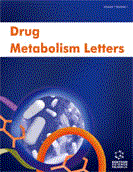Abstract
Background: Few studies have systematically investigated pregnancy-induced changes in protein abundance of drug transporters in organs important for drug/xenobiotic disposition.
Objective: The goal of this study was to compare protein abundance of important drug/xenobiotic transporters including Abcb1a, Abcg2, Abcc2, and Slco1b2 in the liver, kidney and brain of pregnant mice on gestation day 15 to that of non-pregnant mice.
Methods: The mass spectrometry-based proteomics was used to quantify changes in protein abundance of transporters in tissues from pregnant and non-pregnant mice.
Results: The protein levels of hepatic Abcc2, Abcc3, and Slco1a4 per μg of total membrane proteins were significantly decreased by pregnancy by 24%, 72%, and 70%, respectively. The protein levels of Abcg2, Abcc2, and Slco2b1 per μg of total membrane proteins in the kidney were significantly decreased by pregnancy by 43%, 50%, and 46%, respectively. After scaling to the whole liver with consideration of increase in liver weight in pregnant mice, the protein abundance of Abcb1a, Abcg2, Abcc2, Abcb11, Abcc4, Slco1a1, and Slco1b2 in the liver was ~50-100% higher in pregnant mice, while those of Abcc3 and Slco1a4 were ~40% lower. After scaling to the whole kidney, none of the transporters examined were significantly changed by pregnancy. Only Abcg2 and Abcb1a were quantifiable in the brain and their abundance in the brain was not influenced by pregnancy.
Conclusion: Protein abundance of drug transporters can be significantly changed particularly in the liver by pregnancy. These results will be helpful to understand pregnancy-induced changes in drug/xenobiotic disposition in the mouse model.
Keywords: Pregnancy, pregnant mice, transporter, liver, kidney, brain, quantitative proteomics, mass spectrometry.
Graphical Abstract
Drug Metabolism Letters
Title:Quantitative Proteomics Reveals Changes in Transporter Protein Abundance in Liver, Kidney and Brain of Mice by Pregnancy
Volume: 12 Issue: 2
Author(s): Michael Z. Liao, Chunying Gao, Deepak Kumar Bhatt, Bhagwat Prasad and Qingcheng Mao*
Affiliation:
- Department of Pharmaceutics, School of Pharmacy, University of Washington, Seattle, Washington DC, 98195,United States
Keywords: Pregnancy, pregnant mice, transporter, liver, kidney, brain, quantitative proteomics, mass spectrometry.
Abstract: Background: Few studies have systematically investigated pregnancy-induced changes in protein abundance of drug transporters in organs important for drug/xenobiotic disposition.
Objective: The goal of this study was to compare protein abundance of important drug/xenobiotic transporters including Abcb1a, Abcg2, Abcc2, and Slco1b2 in the liver, kidney and brain of pregnant mice on gestation day 15 to that of non-pregnant mice.
Methods: The mass spectrometry-based proteomics was used to quantify changes in protein abundance of transporters in tissues from pregnant and non-pregnant mice.
Results: The protein levels of hepatic Abcc2, Abcc3, and Slco1a4 per μg of total membrane proteins were significantly decreased by pregnancy by 24%, 72%, and 70%, respectively. The protein levels of Abcg2, Abcc2, and Slco2b1 per μg of total membrane proteins in the kidney were significantly decreased by pregnancy by 43%, 50%, and 46%, respectively. After scaling to the whole liver with consideration of increase in liver weight in pregnant mice, the protein abundance of Abcb1a, Abcg2, Abcc2, Abcb11, Abcc4, Slco1a1, and Slco1b2 in the liver was ~50-100% higher in pregnant mice, while those of Abcc3 and Slco1a4 were ~40% lower. After scaling to the whole kidney, none of the transporters examined were significantly changed by pregnancy. Only Abcg2 and Abcb1a were quantifiable in the brain and their abundance in the brain was not influenced by pregnancy.
Conclusion: Protein abundance of drug transporters can be significantly changed particularly in the liver by pregnancy. These results will be helpful to understand pregnancy-induced changes in drug/xenobiotic disposition in the mouse model.
Export Options
About this article
Cite this article as:
Liao Z. Michael , Gao Chunying , Bhatt Kumar Deepak , Prasad Bhagwat and Mao Qingcheng *, Quantitative Proteomics Reveals Changes in Transporter Protein Abundance in Liver, Kidney and Brain of Mice by Pregnancy, Drug Metabolism Letters 2018; 12 (2) . https://dx.doi.org/10.2174/1872312812666180625122810
| DOI https://dx.doi.org/10.2174/1872312812666180625122810 |
Print ISSN 1872-3128 |
| Publisher Name Bentham Science Publisher |
Online ISSN 1874-0758 |
 39
39 5
5Related Articles
-
Recent Developments in Patents Targeting Toll-Like Receptor Genes
Recent Patents on DNA & Gene Sequences Comparison of Glucocorticoid Receptor- and Epigenetically Regulated Genes in Proliferating Versus Growth-Arrested Neuro-2a Cells
CNS & Neurological Disorders - Drug Targets Recent Software Developments and Applications in Functional Imaging
Current Pharmaceutical Biotechnology Nanostructural Hybrid Sensitizers for Photodynamic Therapy
Current Pharmaceutical Design Disruption of Metabolic Pathways - Perspectives for the Treatment of Cancer
Current Cancer Drug Targets Cytotoxicity of Sodium Arsenite-loaded Anti-HER2 Immunoliposomes Against HER2-expressing Human Breast Cancer Cell Lines
Letters in Drug Design & Discovery Microenvironmental Interactions in Chronic Lymphocytic Leukemia: Hints for Pathogenesis and Identification of Targets for Rational Therapy
Current Pharmaceutical Design Hesperetin Liposomes for Cancer Therapy
Current Drug Delivery Base Excision Repair: Contribution to Tumorigenesis and Target in Anticancer Treatment Paradigms
Current Medicinal Chemistry The Genetic Landscapes of Inflammation-Driven Gastrointestinal Tract Cancers
Current Pharmaceutical Design Profiling of Autophagy-Associated microRNAs in the Osteosarcoma Cell Line of U2OS
Anti-Cancer Agents in Medicinal Chemistry Meet Our Editorial Board Member
Protein & Peptide Letters Multiplexed Fluorescence Imaging of Tumor Biomarkers in Gene Expression and Protein Levels for Personalized and Predictive Medicine
Current Molecular Medicine Drug Repositioning for Treatment of Movement Disorders: From Serendipity to Rational Discovery Strategies
Current Topics in Medicinal Chemistry The Medical and Medico-legal Complications of Bulimia Nervosa : Treatments and Complications
Current Women`s Health Reviews Nanosponges Encapsulated Phytochemicals for Targeting Cancer: A Review
Current Drug Targets Thiopurines in Inflammatory Bowel Disease - The Role of Pharmacogenetics and Therapeutic Drug Monitoring
Current Pharmacogenomics Human Whey Promotes Sessile Bacterial Growth, Whereas Alternative Sources of Infant Nutrition Promote Planktonic Growth
Current Nutrition & Food Science Regulation of EMT by Notch Signaling Pathway in Tumor Progression
Current Cancer Drug Targets Editorial [Hot topic: Contemporary Approaches in Cancer Therapy (Guest Editor: Riyaz Basha)]
Medicinal Chemistry















